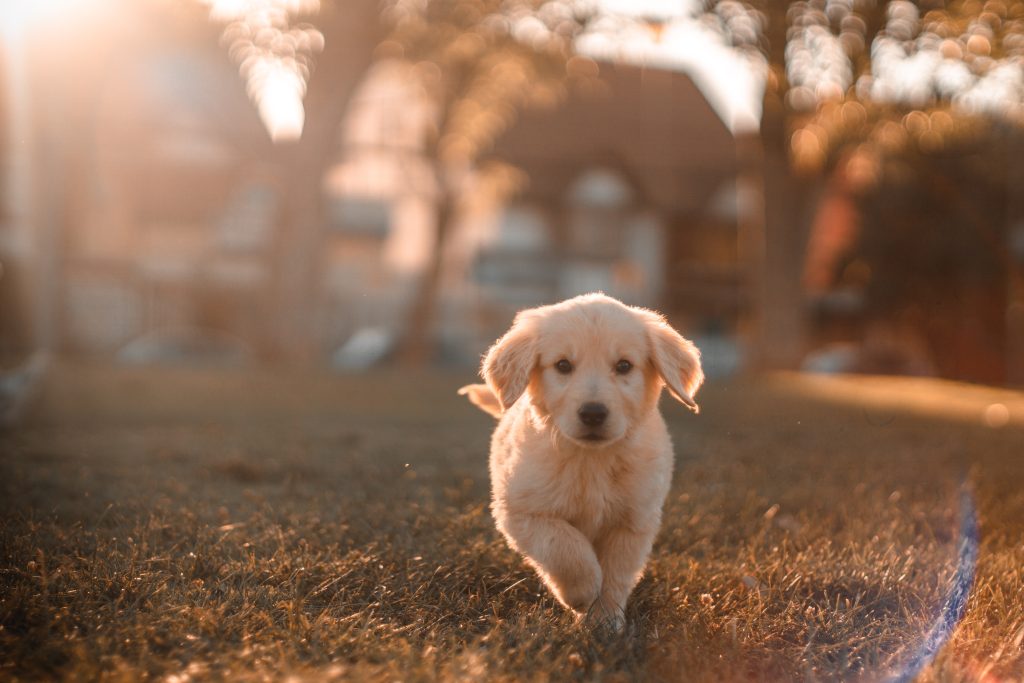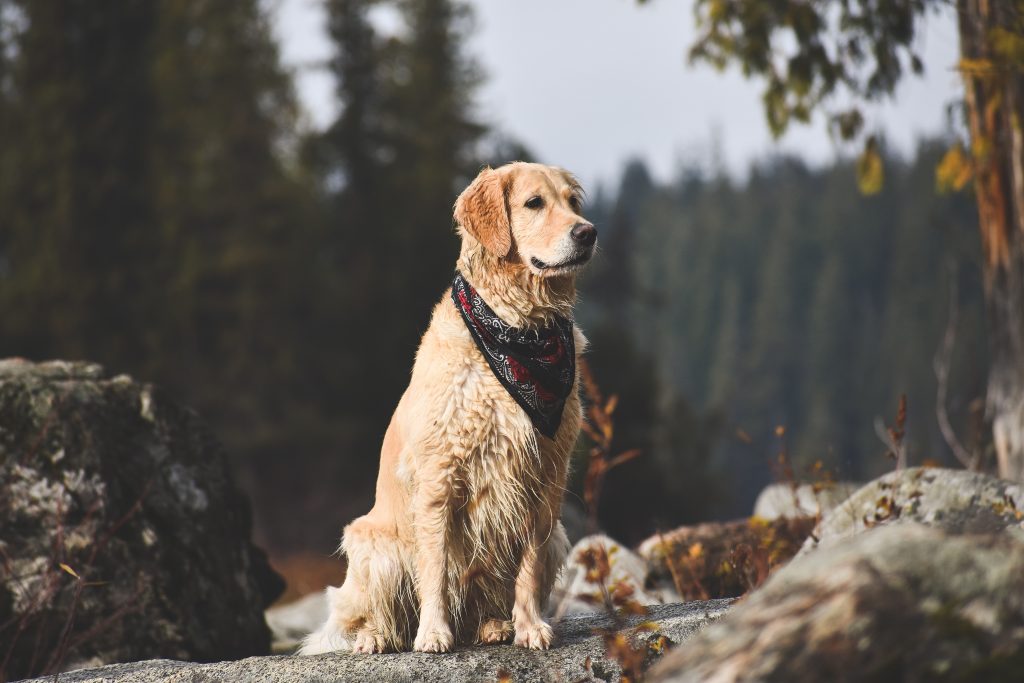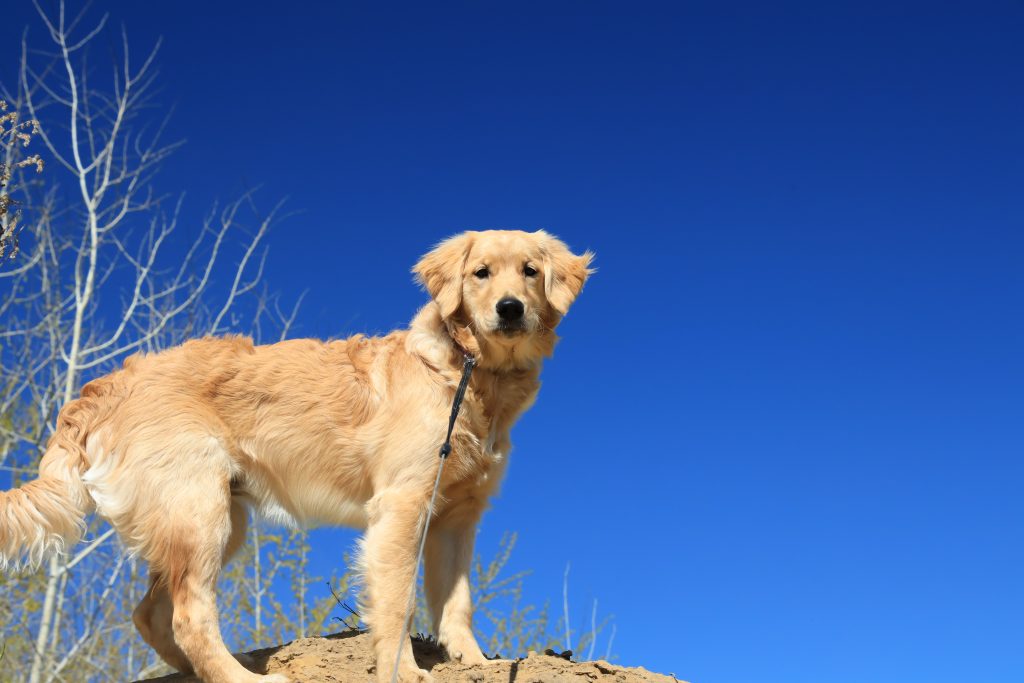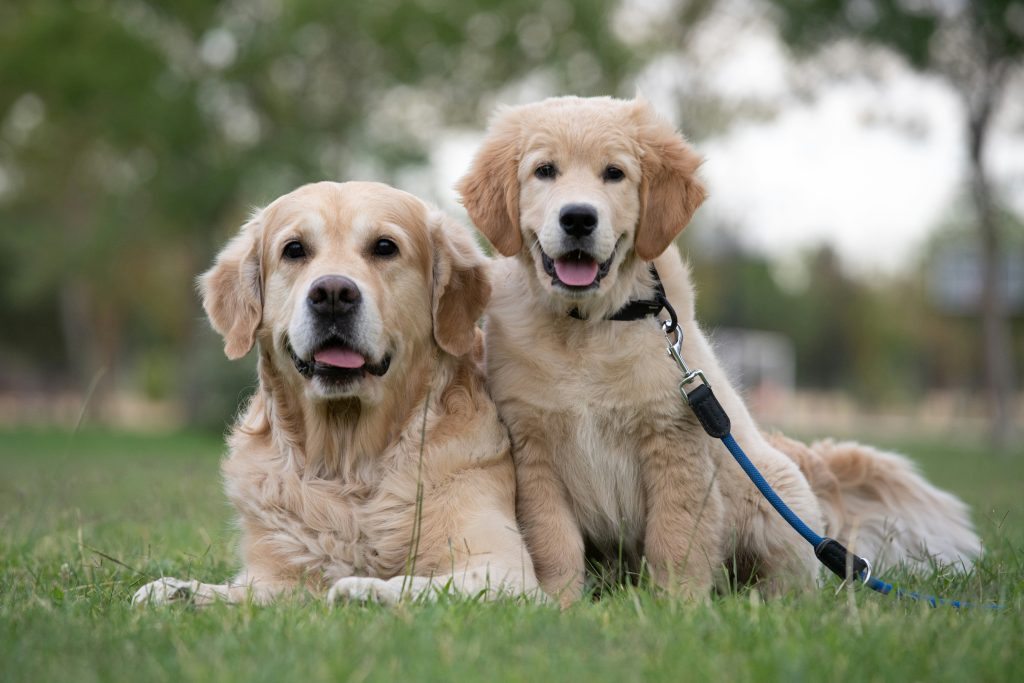
You’re in good company with over 60% of US dog owners choosing Golden Retrievers! They’re smart, energetic, and eager to please. But, they’re not born knowing how to behave. That’s where you come in. This guide’s all about helping you train your golden effectively. You’ll learn everything from basic commands to handling separation anxiety. Let’s embark on this exciting training journey together to nurture a happier, healthier relationship with your loyal friend.
Understanding Golden Retriever Behavior
To train your Golden Retriever effectively, you’ll need to delve into understanding their behavior, focusing on their innate instincts and unique traits. The golden retriever personality is known for being friendly, intelligent, and devoted. These dogs are eager to please, which makes them highly trainable.
Characteristics of golden retrievers include a love for play and exercise. They’re active dogs that require plenty of mental and physical stimulation. Without it, they can develop behavioral issues. Golden retriever characteristics also include a strong retrieving instinct, hence their name. Incorporating fetching games into their training can keep them engaged and tap into their natural instincts.
The golden retriever temperament is generally calm and patient. They’re great with kids and other animals, making them the perfect family pet. However, understanding golden retriever behavior involves recognizing their sensitivity. They respond best to positive reinforcement training methods and can become anxious or fearful with harsh punishment.
In essence, to train your Golden Retriever successfully, you’ve got to play to their strengths. Use their love for play and pleasing their humans to your advantage. Recognize their sensitive nature and adopt a kind, yet firm approach to training.
Importance of Early Socialization

Starting your Golden Retriever’s socialization process early is crucial in shaping their behavior and interactions with others. From the moment you bring your golden retriever puppy home, it’s important to expose them to a variety of experiences. This includes meeting different people, hearing various sounds, and visiting new places.
Early socialization is a critical part of golden retriever training. It helps your puppy grow into a confident and well-adjusted adult dog that’s comfortable in different situations. Without this, golden retriever puppies may develop fear-based reactions or become overly cautious.
Training a golden retriever puppy to socialize properly also means gradually introducing them to other animals. Start with calm and patient dogs, and gradually introduce other pets. Always supervise these encounters to ensure that they are positive experiences for your puppy.
Basic Commands Every Golden Should Know
You should begin teaching your Golden Retriever basic commands as soon as they’re comfortable in their new home. This is an integral part of training a golden retriever, and it will pave the way for a well-behaved, obedient dog.
Here are some essential commands every golden should know:
* **Sit**: This is typically the first command taught in golden retriever puppy training. It’s a fundamental command that establishes you as the pack leader.
* **Stay**: This command is crucial for safety. Training golden retrievers to stay helps prevent them from running into dangerous situations.
* **Come**: This command ensures your golden can return to you when called, vital for off-leash times.
Start training your golden retriever puppy with these commands in a quiet, distraction-free environment. Use praise, treats, and toys as positive reinforcement. Remember, consistency is key in training golden retrievers.
With time and patience, your golden will master these commands, setting the foundation for a well-trained, obedient companion. In the next section, we’ll discuss effective house training techniques, another crucial aspect of golden retriever training.
Effective House Training Techniques

After mastering the basic commands, it’s time to move on to house training your golden retriever, an essential step towards a well-behaved pet. House training isn’t as daunting as it seems, and with patience, consistency, and the right techniques, you’ll have a house-trained golden in no time.
Start by establishing a routine. Goldens thrive on consistency, so set regular meal times and take them outside frequently. This gives them ample opportunities to relieve themselves in the correct place. The key is to anticipate their needs – usually after eating, playing, or waking up.
When they do their business outside, praise them lavishly and offer a treat. Positive reinforcement is crucial in this process. If an accident happens indoors, don’t scold them. Instead, clean up quietly and go back to your routine.
Crate training is another effective method. It taps into their natural instinct not to soil their sleeping area. Make the crate a pleasant place for them, and they’ll soon see it as their safe haven. Remember, the crate should never be used for punishment.
Lastly, be patient. Every golden is different, and some may take longer to house train than others. Keep a positive attitude, and your golden will catch on. Good luck!
Dealing With Separation Anxiety
Dealing with separation anxiety in your golden retriever can be a challenging task, but it’s crucial for their overall well-being and happiness. Separation anxiety is a condition where a dog exhibits distress and behavioral problems when separated from their owners. Golden retrievers, being highly sociable dogs, are particularly susceptible to this condition.
Here are some strategies you can use to help your dog overcome separation anxiety:
* Gradual Desensitization:
* Start by leaving your dog alone for short periods of time.
* Gradually increase the length of your absences.
* Always ensure your departures and returns are calm and low-key.
* Training:
* Teach your golden retriever to sit and stay while you go to another room.
* Reward your dog for staying calm during your absence.
* Gradually increase the distance and time apart in your training.
* Environment:
* Provide a safe, comfortable space for your dog when you’re away.
* Leave some of your clothes or items with your scent around to comfort your dog.
* Consider using puzzle toys or treat-dispensing toys to keep your dog occupied.
Training for Leash Walking

Before starting a walk, it’s crucial to ensure your golden retriever is properly leash-trained. This training is vital not only for enjoyable walks but also for your dog’s safety. Start in a familiar, distraction-free environment to help your golden feel at ease. Begin by letting them wear the leash around the house, praising and rewarding them for calm behavior.
The key is to teach your golden retriever to walk with a loose leash, meaning they stay by your side and don’t pull. You can achieve this through a combination of positive reinforcement and gentle corrections. Whenever your golden is walking nicely by your side, reward them with treats and praise. If they start to pull, stop walking. Only resume the walk when the leash is loose again, reinforcing the concept that pulling won’t get them anywhere faster.
Managing Golden Retriever Energy Levels
Managing the high energy levels of your Golden Retriever is a crucial aspect of their training regimen. This breed is known for its exuberance and vitality, which can be both a joy and a challenge.
To successfully manage their energy levels, consider the following:
* Exercise: Regular and vigorous exercise is essential. This could include long walks, runs, or playtime in the yard.
* Involve them in activities like fetch or swimming.
* Always ensure they’re well-hydrated during exercise.
* Mental Stimulation: Keep their minds sharp with puzzle toys or obedience training.
* Teach them new commands or tricks.
* Interactive toys can keep them busy when you’re not around.
* Balanced Diet: Feed them high-quality dog food that meets their nutritional needs.
* Avoid overfeeding as it can lead to obesity.
* Treats should be used sparingly and primarily as a reward for good behavior.
Advanced Training Tips

After mastering the basics and effectively managing your Golden’s energy levels, you’re now ready to explore advanced training techniques for your furry friend. These tips aren’t just about teaching new tricks, but also about enhancing your bond and communication with your Golden.
Start with agility training. Set up an obstacle course in your yard and guide your dog through it, rewarding them for each successful completion. This not only mentally stimulates your dog but also provides a great source of exercise.
Next, consider teaching your Golden retriever how to ‘find’ or ‘fetch’ specific items. It’s a fun way to engage their natural retrieving instincts. Start with their favorite toy, using a specific command, like “find teddy,” and gradually progress to other objects.
Lastly, remember to keep sessions fun and engaging. This isn’t a military drill! If you or your dog aren’t enjoying it, take a break and try again later. The goal is to strengthen your bond and enhance your dog’s skills, not cause stress or frustration.
As you progress in your advanced training, you may encounter signs of aggression, which is our next topic of discussion: preventing and handling aggression.
Preventing and Handling Aggression
In your journey towards a well-trained Golden Retriever, it’s crucial to understand that any signs of aggression must be addressed promptly and effectively. Aggression in dogs can stem from fear, dominance, territoriality, or even illness. It’s essential to recognize the triggers and work towards eliminating or managing them.
* Identifying Aggression
* Look for signs such as growling, snapping, or biting.
* Pay attention to body language – stiff body, bared teeth, or intense stare.
* Notice if your dog is overly protective of food, toys, or space.
* Preventing Aggression
* Socialize your Golden Retriever from a young age with different people and environments.
* Train your dog to obey basic commands like ‘sit’, ‘stay’, and ‘leave it’.
* Avoid situations that trigger aggression until your dog is better trained.
* Handling Aggression
* Never punish aggression with aggression, it’ll only escalate the situation.
* Consult a professional dog trainer or a behaviorist if the aggression persists.
* Reward calm and submissive behavior regularly.
Consistency and Patience in Training
Developing consistency and patience in your training approach is crucial for your Golden Retriever’s learning process. Consistency provides a clear structure and routine, helping your dog understand what’s expected of them. Use the same commands, rewards, and responses to their behavior regularly. This repetition aids in engraving the desired behaviors into your pet’s mind.
However, training a Golden Retriever isn’t a quick process. It requires patience. You’re teaching them a whole new language – your language. So, if they don’t get it right on the first, second, or even tenth time, don’t get discouraged. Just keep trying, and eventually, they’ll understand.
Remember, your energy plays a role too. If you’re frustrated, they’ll sense it, which can hinder their ability to learn. Maintain a positive, patient attitude during each training session.
Moreover, it’s essential to be patient with yourself. You’ll make mistakes, but that’s part of the learning process for both you and your dog. Just keep going, stay consistent, and remember that with time and patience, you’ll have a well-trained Golden Retriever.
Conclusion
So, there you have it! Training your Golden Retriever can be a joyous journey filled with growth and companionship. With consistency, patience, and a few savvy techniques up your sleeve, you can effectively channel your Golden’s boundless energy into positive behaviors. Did you know that according to the American Kennel Club, Golden Retrievers are the third most popular dog breed in the U.S.? It’s clear, the time and effort invested in training these intelligent, loving dogs is more than worth it!
